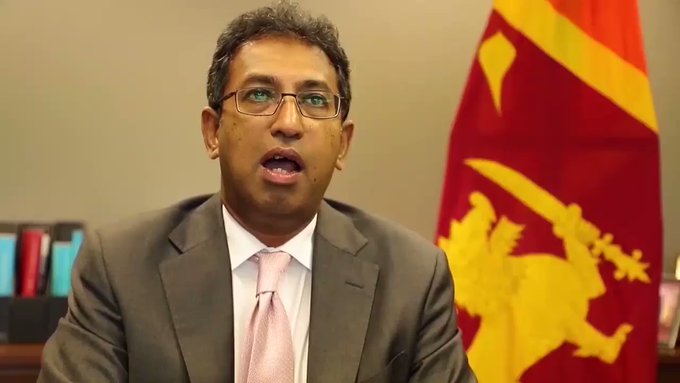● Sri Lanka's Economic Challenge: A stark contrast between Tamil Nadu's expected growth of 14% and Sri Lanka's negative 3.5% this year.
● Ambitious Goal of High-Income Country: President's vision to achieve high-income status by 2048, requiring 6.5% annual growth from now onwards.
● Bridging the Skill Gap: Concerns over the volume of skilled labor produced in India, highlighting Sri Lanka's need for educational reforms.
● Embracing Trade Agreements: Unlocking the potential of bilateral and regional trade deals to boost exports and attract foreign exchange.
● The Power of Social Market Economy: Proposing a new mindset to achieve social and economic justice in Sri Lanka's growth journey.
● Focus on Sustainable Development: Emphasizing continuity in policies and a unified approach, beyond party affiliations, for lasting change.
● Seizing Opportunities with India: Leveraging South India's growth, as exemplified by Tamil Nadu's success, to benefit Sri Lanka's economy.
In a recent press conference, MP Harsha de Silva from the Samagi Jana Balawegaya (SJB) addressed critical issues hindering Sri Lanka's economic progress and outlined a vision for sustainable growth through a social market economy model. The press conference shed light on several factors contributing to the country's economic challenges and proposed solutions to pave the way for a prosperous future.
Comparing Tamil Nadu's Expected Growth to Sri Lanka's Reality:
One of the key concerns raised was the significant disparity between Tamil Nadu's projected growth of 14% and Sri Lanka's negative 3.5% growth. MP Harsha de Silva emphasized the need to understand the obstacles preventing Sri Lanka from achieving higher growth rates, especially if the country is to attain its goal of becoming a high-income nation by 2048.
Growth Targets and Production-Based Economy:
To realize the ambitious goal of high-income status, Sri Lanka must grow at a minimum of 6.5% annually until 2048. The MP questioned the feasibility of a production-based economy and emphasized the importance of identifying the right high-tech products or components and target markets to stimulate demand.
Overcoming Skill and Knowledge Gaps:
The MP acknowledged the presence of over 800 higher education institutes in India, particularly in Tamil Nadu, and their role in nurturing skilled labor. However, he also noted that the volume of skilled labor produced in India far exceeds Sri Lanka's output, which raises significant questions about the country's ability to compete effectively on the international stage. To achieve sustainable economic growth and development, Sri Lanka must address the disparity in skilled labor and invest in educational reforms to bridge the gap.
Building Bridges through Regional Trade Agreements:
MP Harsha de Silva stressed the utmost significance of engaging in bilateral and regional trade agreements, which would facilitate the free flow of goods and further promote international trade for Sri Lanka. Emphasizing the need to embrace technological advancements in production, he pointed out the immense potential for exports, especially in sectors such as electronic vehicles, auto components, and telecommunications equipment, where Tamil Nadu in India has already established a strong presence. By tapping into these sectors and leveraging modern production methods, Sri Lanka can enhance its position in the global value chains and stimulate economic growth.
A Change in Mindset:
The MP called for a fundamental shift in the country's mindset and highlighted the necessity of a social market economy model to achieve social and economic justice. He underscored the importance of transparency and the avoidance of false promises, urging a focus on the core issues.
The Role of Elections and Continuity in Development:
In the pursuit of a sustainable development agenda with expansive reforms, MP Harsha de Silva emphasized the importance of elections and people's mandate. He dismissed the idea of focusing on personalities and emphasized the need for a consistent development roadmap, independent of the ruling party.
Leveraging Opportunities with India:
The MP rejected the notion that building bridges with India would be disadvantageous to Sri Lanka and pointed to the opportunities arising from South India's rapid growth. He cited Tamil Nadu's success in becoming the 'Detroit of Asia' and highlighted the potential for energy export from Mannar to India, similar to Bhutan's hydro-dam exports.
MP Harsha de Silva's press conference provided valuable insights into the challenges and opportunities facing Sri Lanka's economy. Emphasizing the significance of a social market economy model, regional trade agreements, and continuity in development policies, he advocated for an inclusive and sustainable path to economic growth. By understanding the core problems and making educated decisions, Sri Lanka can achieve its goal of becoming an advanced economy by 2048.

